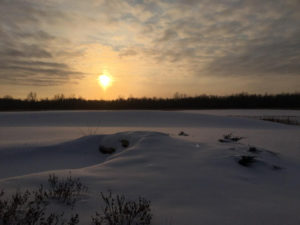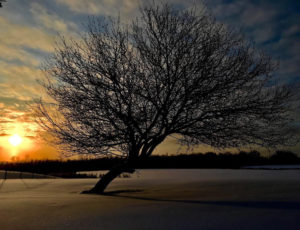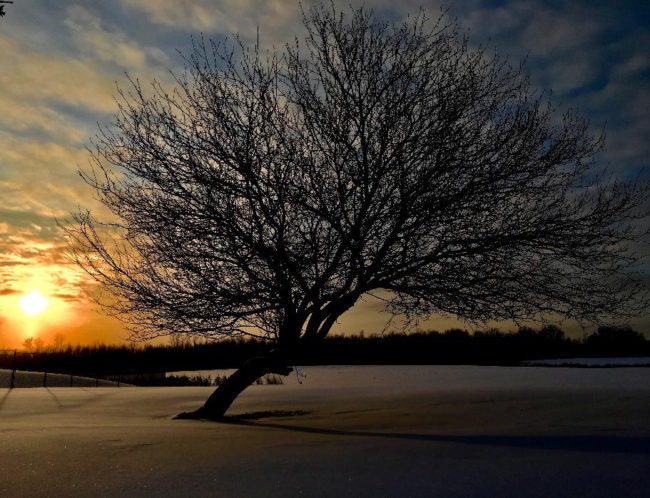 My friend just sent me a poster saying “January was a tough year, but we got through it!” We know that Seasonal Affective Disorder (SAD), or the “Winter Blues” is a real thing causing feelings of depression for many people.
My friend just sent me a poster saying “January was a tough year, but we got through it!” We know that Seasonal Affective Disorder (SAD), or the “Winter Blues” is a real thing causing feelings of depression for many people.
Shorter days and cold and inclement weather make travel or even just putting the garbage out less enjoyable. People already battling mental health issues can certainly find the winter to be something akin to a long, lonely sentence. If you are struggling with PTSD or another Operational Stress injury, we know that the worst thing you can do is to isolate. Yet the lethargy and decreased mood that comes with SAD and the cold weather can easily drive you to do just that.
For those of you who are lucky enough to be snow birds and can escape to the south for the winter, good on you! For the rest of us that have to stay here and slog out another Canadian winter, here are some things to contemplate.
Nature, working with the physics and chemistry of life, constructs the seasons. Spring is the season of new growth and expansion, summer the season of vibrancy and brilliance, fall the season of reaping and storing, and winter the season of rest and submission. There are other cycles of life as well. A mighty oak grows with oxygen, sunlight and nutrients, but when its life cycle is over, it returns to the earth
Although it may look like things are at a standstill in the winter, there is actually much going on in preparation for the new growth season, which is only (How many weeks away? What happened to the groundhog this year, anyone know?) The apparent dormancy we see over the winter in nature is much more than a period of suspended animation. Seeds in the ground are still metabolizing, but at a slower rate. After a period of time, hormones trigger initiation of new growth, which can happen if the conditions are favourable (ie enough water around). And this time of year, all the gardeners are starting to plant seeds indoors, looking forwards to spring.
 As many of you have probably figured out, we are always either growing and expanding or retreating ourselves. We are never staying at a standstill. You can feel like you are getting into better physical shape or deconditioning. You can be learning new skills and keeping up in your field, or falling behind. You can be improving mentally, or isolating more and becoming more anxious and despondent. If you pay attention to your thoughts and energy levels and where you place them, you may become more aware of what is actually going on with you.
As many of you have probably figured out, we are always either growing and expanding or retreating ourselves. We are never staying at a standstill. You can feel like you are getting into better physical shape or deconditioning. You can be learning new skills and keeping up in your field, or falling behind. You can be improving mentally, or isolating more and becoming more anxious and despondent. If you pay attention to your thoughts and energy levels and where you place them, you may become more aware of what is actually going on with you.
When you are expanding, you feel excited, optimistic and energized. You feel focussed and driven. Creative ideas abound. When you are in a contracting, retreating state, you feel listless and more depressed and anxious. You may sleep too much or not enough. You feel hopeless and too often you will tend to use your thoughts and the energies you have to mentally punish yourself.
But what if you use this quiet winter time like seeds underground, to build yourself up to get ready to spring? What if you put your energies into winter sports to improve physical fitness and the time you invest in your family? What if you go into hibernation to do some serious research on courses you might want to take, projects you might want to tackle, a new business you might want to look into?
And if you are seriously in a place where you are finding yourself spiralling down, gather your energy to pull yourself up. Call your doctor and ask for an extra appointment to talk about how you are feeling and what you can do about it. Or read some good books on improving your mental state.
 Call a friend and go for coffee. Go to a peer support group. Maybe there are others who are also struggling and could use your support. Maybe feeling compassion and caring for others is just the distraction and boost you need.
Call a friend and go for coffee. Go to a peer support group. Maybe there are others who are also struggling and could use your support. Maybe feeling compassion and caring for others is just the distraction and boost you need.
Winter is a great time to meditate on what is truly important. It is a time to nurture yourself and your loved ones. It is a time to be optimistic about the future and to plant those spring seeds.

